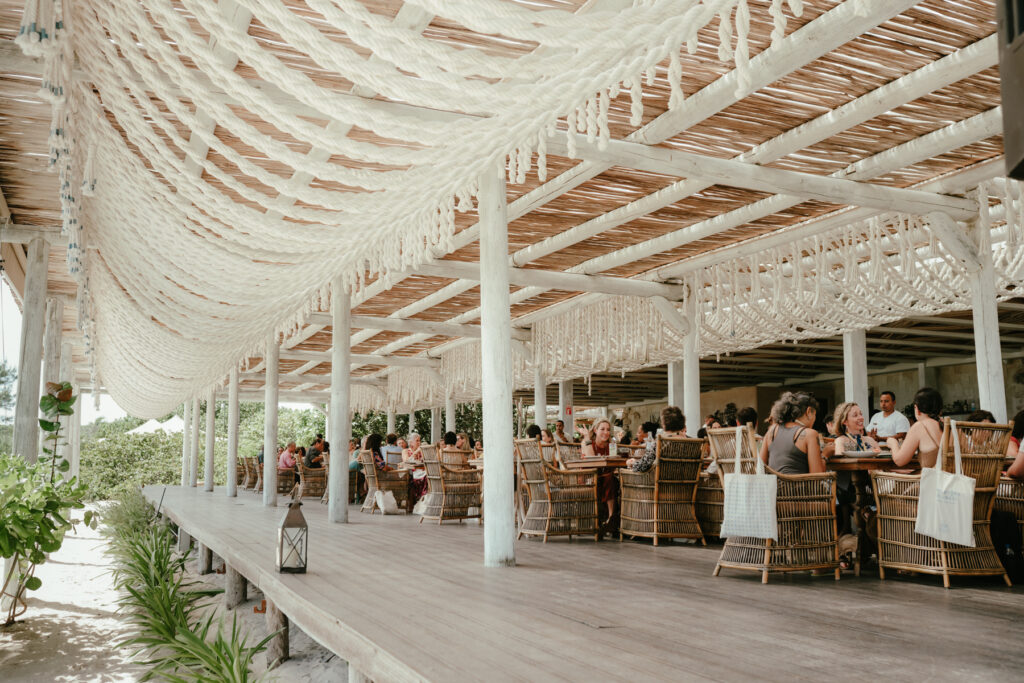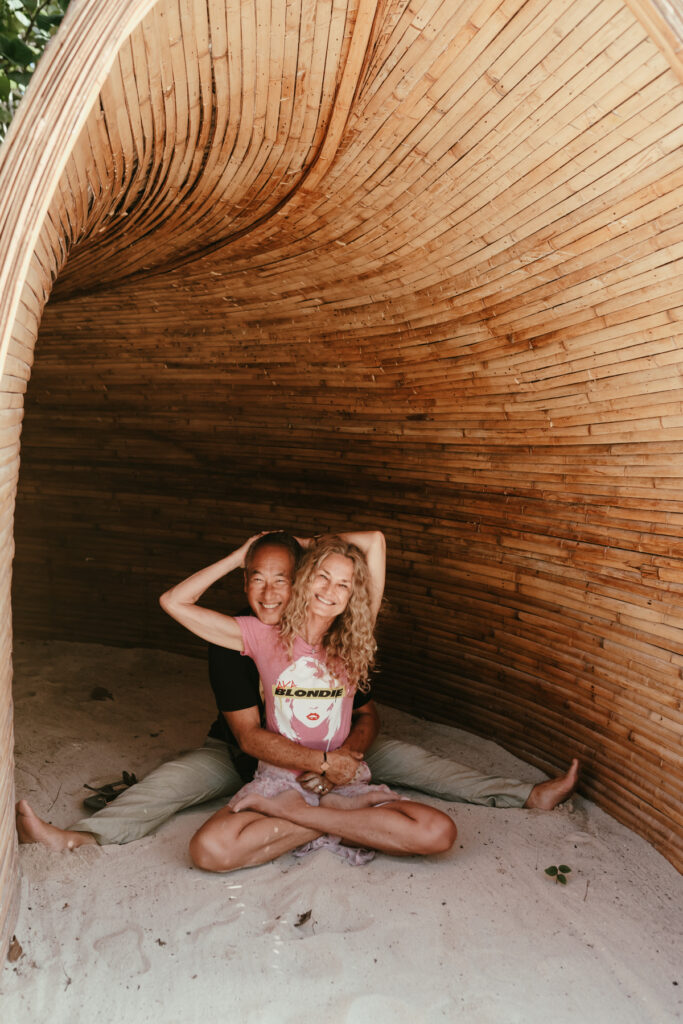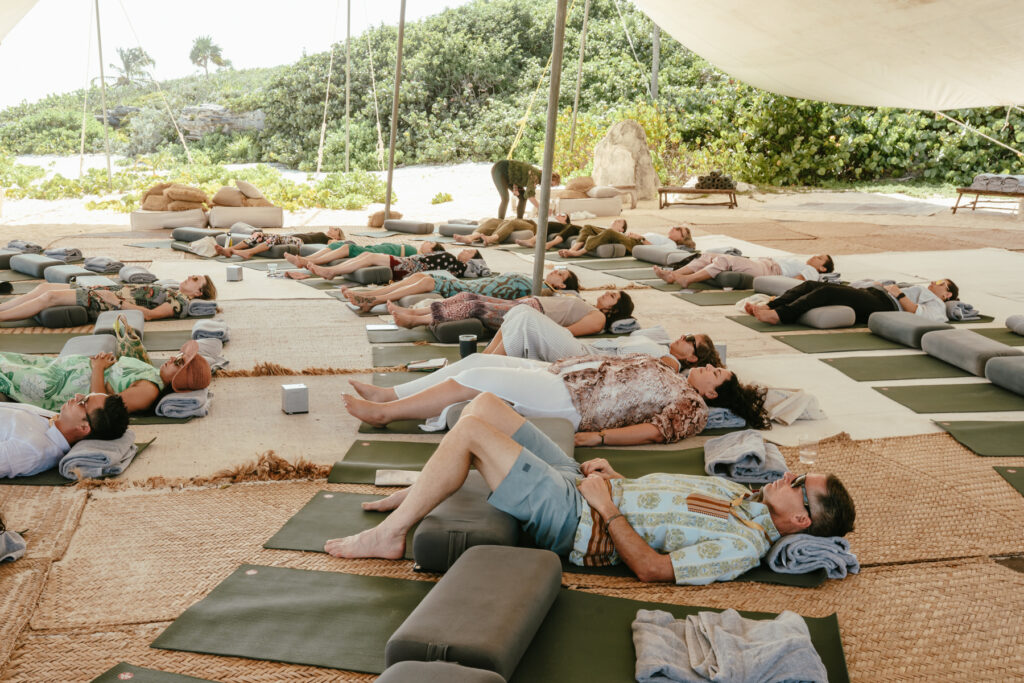Men, The Menopause And Solo Travel. How More Of Us Are Turning To Wellness Retreats
By Laura Montesanti - Synergy
With a career that spans over 25 years working in wellness, travel, retail, yachting and hospitality, Laura Montesanti is not only well versed across the industries but has also gained a deep understanding of how they interconnect and complement each other. Having attended countless travel and wellness trade shows in her career that spanned London, South Africa, Montenegro, France and more, Laura felt the industry lacked an event that fully focused on combining wellness, travel and retreats in the same space, hence the reason she decided to launch Synergy -The Retreat Show, a sophisticated, holistic business networking event for wellness and travel professionals.
**Q: For Good: I gather you had quite a challenging start to Synergy
It was! We launched during lockdown. Though a difficult time, lockdown gave me the chance to stop and think about what I’m about and what impact I can make. I know many people had that realisation too, acknowledging they weren’t in the right space or job and could do more. Hence, the desire for wellness experiences grew. People had the time to reflect. We are now in our third year of in-person events around the world.
**Q: For good – How did lockdown impact the wellness industry?
As a result of lockdown, mental health has become more openly discussed, making people more accepting of taking time for themselves. This shift in the perception of mental health has led more individuals to acknowledge the need for personal time and consider retreats or other healing practices. All these factors have brought a greater spotlight to retreats and a change in how people approach holidays, viewing them as opportunities for self-reflection and healing.”
**Q: For Good – It’s also seen the rise in solo travel?
This is one thing I’m very passionate about. I used to be a big solo traveller; now, when I lived I lived in London for about 10 years, during which time, I became a big solo traveller. My ‘breathing time’ was taking off for a solo trip.
When you travel alone, you have the power to make your own choices. You can decide the destination based on your own feelings, which I call destination energy. Choosing a destination becomes a reflective process, considering what you’re seeking in that particular moment. Traveling alone allows you to fully immerse yourself in the experience, without external opinions influencing you. You can engage in deeper experiences and choose activities like walking meditation without any constraints.
The retreat becomes about your inner journey and retreats provide sense of safety and community. So, it’s definitely something that works well for many people.
“People are realizing the importance of tailoring experiences for specific demographics, including age groups”
**Q: For Good – You’ve mentioned tailoring wellness experiences for different demographics. How do you approach this?
This has become topic in recent years. People are realizing the importance of tailoring experiences for specific demographics, including age groups. Menopause retreats, for instance, have gained significant attention. Demographically, addressing different age groups is crucial, and it’s fantastic that this has been acknowledged.
Furthermore, considering the unique experiences of men and women is essential. Life has phases that affect individuals differently based on gender. Men’s retreats, for example, have become increasingly popular. A positive shift has occurred, allowing men to openly express their emotions. Empowerment comes from acknowledging that it’s okay not to be okay.
As a result, men’s mental health is being more thoroughly examined, with various retreats focusing on specific topics, encouraging vulnerability, and fostering a sense of community.



The emergence of retreats for women in various life phases is also noteworthy. The diversity in retreat offerings reflects the recognition of unique needs at different stages of life. So, the overall landscape of retreats has evolved significantly.
**Q: For Good – Sustainability is a key consideration. How do your wellness retreats contribute to the local environment?
I believe retreats are actually very helpful in making tourism more sustainable. They address off-peak times of the year for certain destinations, breaking down the mass tourism flow into more phases throughout the year.
Supporting local communities is a crucial factor. Many retreat leaders now include donations within their fees to support the local community where the retreat is held.
This giving-back approach is something we promote a lot with Synergy. We also change locations every year to emphasize the value of the location and its cultural heritage. Learning from locals and understanding the richness of the local culture enhances the overall experience. Last year, in Mexico, we explored Mayan culture, incorporating their wellness practices into the event.
We see more and more of this happening, bringing in locals to support and including them in the experience or giving back.
Learning from locals and understanding the richness of the local culture enhances the overall experience
**Q: For Good – how do you see wellness becoming increasingly important to the travel industry? And what role does it play in shaping the overall travel experience?
Travel agents and properties are realizing how a unique experience can significantly impact people’s lives.
Consider the difference between an all-inclusive holiday with lots of drinks and a somewhat blurry memory versus an immersive experience where you engage in rejuvenating practices, heal, learn something new, leaving with a profound sense of fulfilment. The latter creates a lasting impact, fostering more repeat clients and building loyalty towards travel agents who craft such meaningful experiences.
Many hotels are now incorporating complimentary experiences, such as morning yoga classes, energy healing sessions, or sound healing in the evening, as part of their daily activities.
Guests increasingly discover and appreciate these offerings and recognize the positive impact on their personal well-being. Consequently, these trends are making a positive impact on the travel industry in various ways.

**Q: For Good – corporate retreats are obviously becoming more common. In your experience, though, how can businesses benefit from incorporating wellness into their environment? And how does it impact their employees?
Corporates are increasingly recognizing the need to prioritize self-care and the benefits to their employees, and ultimately how it can contribute to providing better services to their clients.
In fact, travel agents report being approached by more companies nowadays to organize these trips with coaches and facilitators to help the team. Retreat leaders organize specific segments; for example, a doctor who organizes retreats for other doctors to cope with pressure, find healing skills, and handle job-related stress. These initiatives provide tools for better job performance and ultimately a better life.
It really helps people feel empowered with their skills, and that translates into better delivery and general performance. The benefits also include people coming together from the company, bonding, and valuable experience sharing.
**Q: For Good – It always seemed to be for the affluent, those with money. Is that changing? Is it becoming more accessible to the masses?
Actually, that’s one of the main conundrums for retreat leaders. Though this is changing. largely helped by the increase in wellness retreats, providing more options beyond the luxury resorts.
For example, more online retreats have started. Also, city retreats which a thriving community. The healing that you get is just valuable. It’s still a retreat. So I’ve seen more of that sparking up that will help really address the lack of time and the lack of money for people to commit to say, one week in Sri Lanka, for example, which is still, not accessible for everybody.
www.theretreatshow.com

